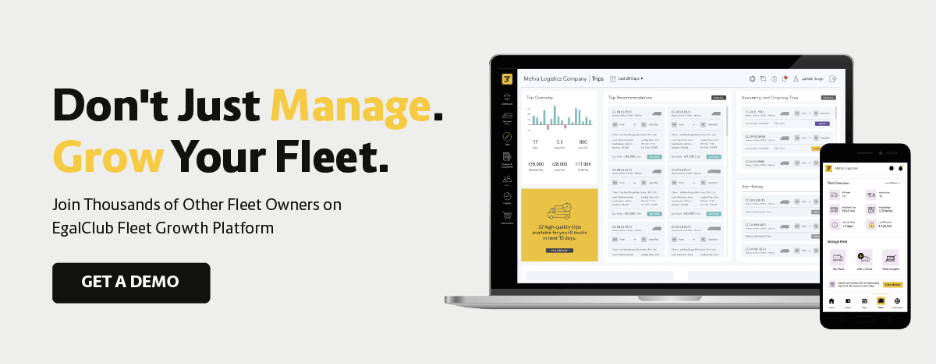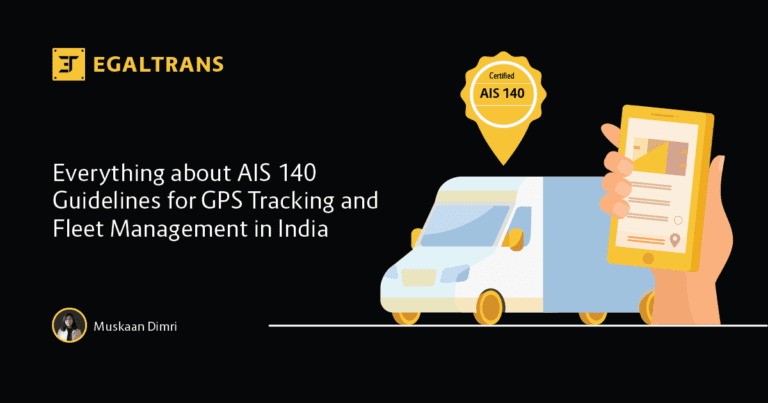In the fast-paced world of trucking and logistics, staying ahead of the curve is essential for success. Over the years, the industry has witnessed a significant transformation with the integration of cutting-edge technology. One of the most impactful innovations in fleet management is the Internet of Things (IoT). In this article, we’ll delve into the past, present, and future of IoT in fleet management and explore how it has revolutionized the industry.
The Past: Traditional Fleet Management
Traditionally, fleet management relied on manual processes, human intervention, and disconnected systems. Keeping track of vehicles, monitoring fuel consumption, and ensuring timely maintenance were often labor-intensive and error-prone tasks. It was challenging to obtain real-time data and optimize operations simultaneously.
The Present: IoT in Fleet Management
The advent of IoT has brought a paradigm shift to fleet management. IoT devices, such as GPS trackers, sensors, and cameras, are now integrated into vehicles, enabling real-time data collection and analysis. Here’s how IoT has transformed fleet management in the present:
1. Real-Time Tracking:
IoT devices provide accurate and real-time information about vehicle location, speed, and driver behavior. Fleet managers can monitor their entire fleet on a digital map, leading to improved route planning and reduced fuel consumption.
2. Predictive Maintenance:
IoT sensors collect data on the vehicle’s health, enabling predictive maintenance. This proactive approach reduces downtime and extends the lifespan of the vehicles.
3. Fuel Efficiency:
With IoT, fuel consumption can be monitored in real-time. Fleet managers can identify inefficient driving habits and implement strategies to reduce fuel costs.
4. Safety:
Enables the monitoring of driver behavior, helping to improve safety. Real-time alerts can be generated for risky driving practices, reducing accidents and insurance costs.
5. Data Analytics:
IoT data can be analyzed to make informed decisions and optimize fleet operations. This data-driven approach leads to cost savings and increased efficiency.
The Future: What Lies Ahead?
As technology continues to advance, the future of IoT in fleet management holds even more promise. Here are some trends to watch out for:
1. Autonomous Vehicles:
Self-driving trucks equipped with advanced IoT systems will become more prevalent, leading to increased safety and efficiency
2. Sustainability:
IoT will play a vital role in reducing the carbon footprint of the industry. Electric and hybrid vehicles will be integrated with IoT for better energy management.
3. Enhanced Security:
IoT will continue to improve security, reducing the risk of theft and unauthorized access to vehicles.
4. Blockchain Integration:
Blockchain technology will provide enhanced data security, transparency, and traceability in fleet management.
5. Artificial Intelligence:
AI-driven analytics will offer deeper insights, enabling proactive decision-making and improved operations
The integration of IoT in fleet management has come a long way from the days of manual record-keeping and disconnected systems. It has revolutionised the industry by providing real-time data, predictive maintenance, enhanced safety, and data-driven decision-making. As we look to the future, the continued evolution of IoT technology promises even greater efficiency, sustainability, and security for the trucking industry. Embracing these advancements will be essential for businesses to stay competitive and thrive in the ever-evolving world of logistics.







[…] As we navigate the future, embracing innovations such as telematics, predictive analytics, automation, and sustainable practices will be crucial for staying competitive and meeting the challenges of an […]